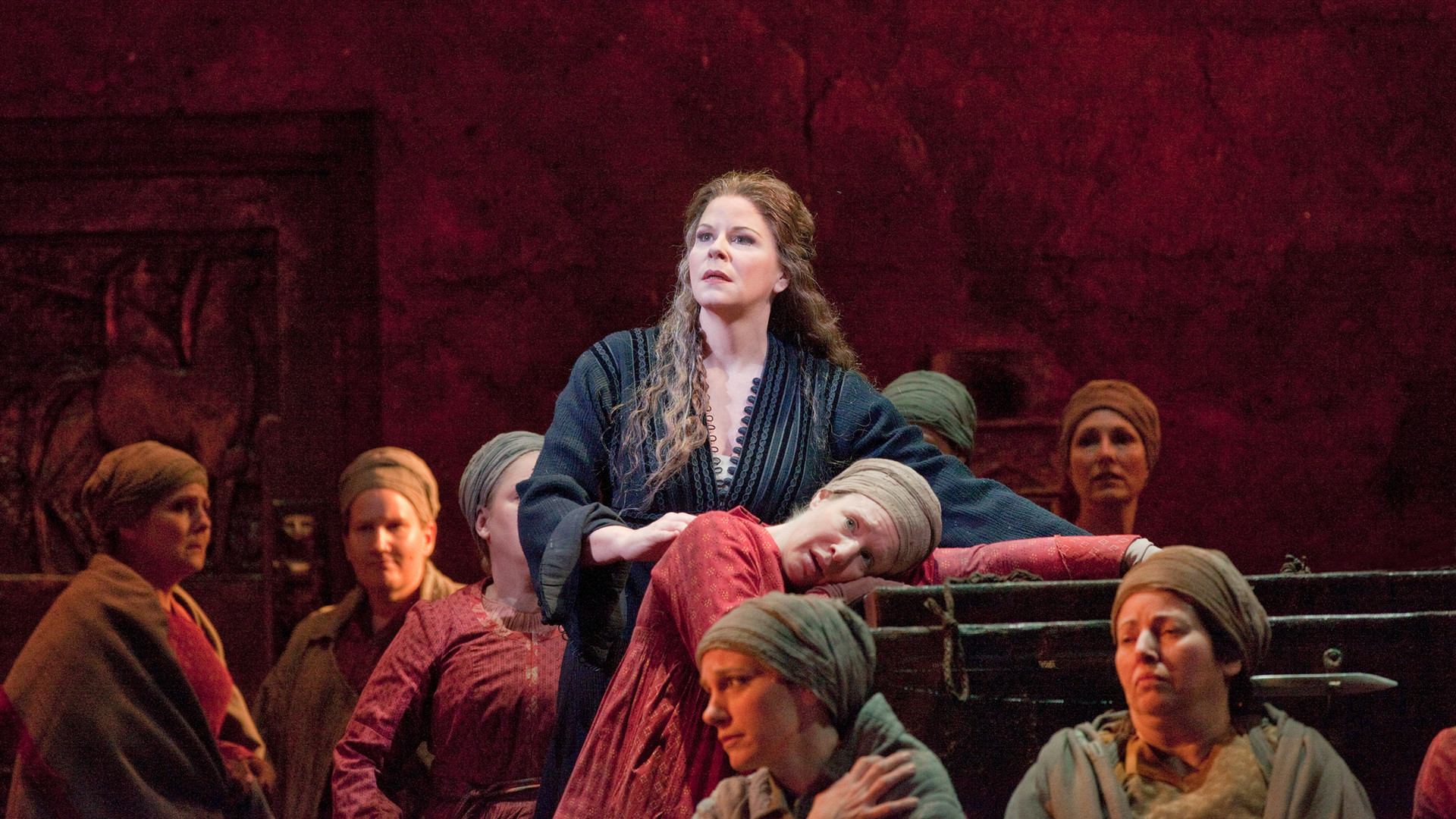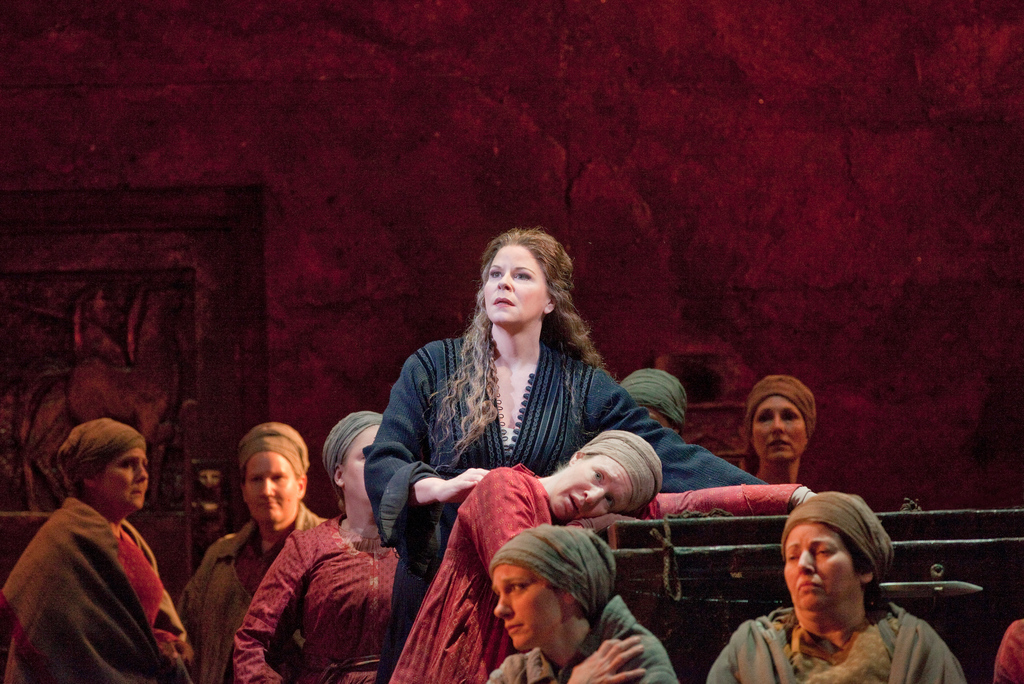Before the Trojan War, Agamemnon gathered the Greek armies at the port of Aulis. The goddess Diane sent unfavorable winds to prevent the Greeks from sailing. Her oracle set a condition for Agamemnon: to earn the right to sail forth and destroy an innocent country, he would have to sacrifice his own daughter. Agamemnon accepted these terms and killed his young daughter Iphigénie on the altar. In his play Iphigenia in Tauris Euripides imagines that Diane plucked Iphigénie from that altar and delivered her to a temple in distant Tauride, where Iphigénie began to serve the enemy Scythians as Diane’s high priestess—all the while Iphigénie’s family believing her dead.
ACT I
Fifteen years later, a storm batters Diane’s temple at Tauride. Iphigénie and the other priestesses—all of them captives from Greece—ask the gods for safety and peace from the storms raging both outside and within their hearts. Iphigénie relates a dream: her home was destroyed; her father was killed by her mother, Clytemnestre, who gave her a dagger; her brother Oreste cried out to her for help, but she was forced to kill him. The priestesses grieve with Iphigénie and urge her not to lose hope that she will see Oreste again, but she prays to Diane to end her life (“Ô toi qui prolongeas mes jours”).
The Scythian king, Thoas, comes to Iphigénie in despair, followed everywhere by omens and voices calling for his downfall. Oracles have ordered him to sacrifice every stranger to the country to end his torment. His soldiers come with news of new captives—two Greek men—and Thoas orders Iphigénie to kill them on the altar. The Greeks are brought in: one is half-mad, haunted by past crimes, the other defies Thoas. They are imprisoned as the Scythians call for blood.
ACT II
The strangers are Oreste and his lifelong friend Pylade. Oreste, who has killed his mother and is being pursued by the Furies, lives on the edge of madness; now he feels responsible for Pylade’s imminent death (“Dieux qui me poursuivez”). Pylade calms Oreste with the pledge that they will die together (“Unis dès la plus tendre enfance”). Pylade is taken away, and Oreste sinks gradually into sleep (“La calme rentre dans mon cœur”). But the Furies stalk him even in his dreams. He awakens from a nightmare to find Iphigénie standing before him. Without revealing her identity she questions him about the royal family in Mycène, and he tells her all: Clytemnestre murdered Agamemnon to avenge the death of Iphigénie, Oreste struck down Clytemnestre to avenge his father and then, he adds, Oreste killed himself. Iphigénie sends the stranger to be shackled to the altar, and—now without country, kindred or hope—mourns the loss of her family (“Ô malheureuse Iphigénie”).
ACT III
Iphigénie feels a strong kinship for the prisoner (“D’une image, hélas!”). She resolves to save at least one of the captives and to send the survivor to Mycène with a letter for her sister, Electre. Pylade, who has been tortured, is reunited with Oreste, and Iphigénie tells them Oreste must live and carry the sealed letter (Trio: “Je pourrais du tyran”). Pylade is happy to die for his friend’s life (“Ah! mon ami”). Oreste, determined that he himself should die, seizes the sacrificial knife and threatens to take his own life if Iphigénie will not spare Pylade. Iphigénie gives Pylade the letter and helps him escape.
ACT IV
Iphigénie tries repeatedly to perform the sacrifice, but she cannot bring herself to harm the stranger and cries out angrily against Diane (“Je t’implore et je tremble”). Oreste is brought in (“Que ces regrets touchant”). Touched by Iphigénie’s sadness and her concern for him, he tries to encourage her to do her duty, calling out in the final moment, “Iphigénie, beloved sister, thus also did you perish at Aulide.” Sister and brother realize the truth. Thoas bursts in: Iphigénie’s plot has been discovered. He orders the Greek killed immediately and is about to sacrifice Oreste himself when Pylade returns with Greek soldiers to save his friend. Thoas is killed in the fray, which is halted when Diane herself appears to pardon Oreste, set the Greek women free, and send prince and princess home to Mycène—and the first happiness they have known since before the Greeks set sail for Troy.







